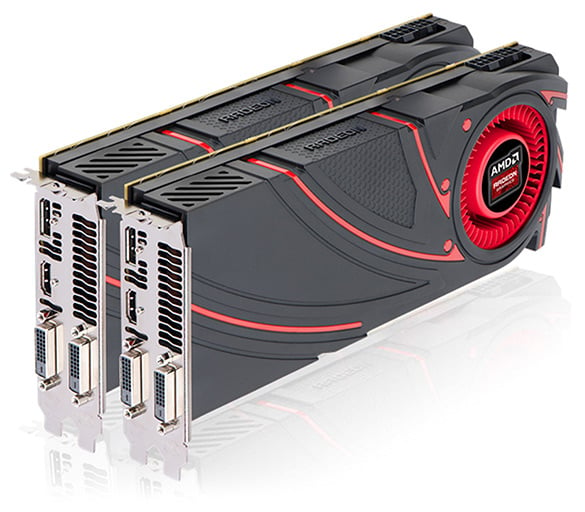AMD Releases Catalyst 13.11 Beta 9.2 Driver to Address Radeon R9 290 Series Performance Variance Bug
AMD came out swinging when it launched its R9 Series of graphics cards, including the Radeon R9 290, which goes toe-to-toe with NVIDIA's GeForce GTX 780 card. In our review of the Radeon R9 290 part, we recorded solid performance throughout our batch of benchmarks, and we couldn't help but be impressed by its aggressive price point ($399).
Unfortunately for AMD, users began reporting throttling issues with the card causing performance to dip by over 15 percent. We were able to replicate the throttling issue, which ultimately forced us to pull our recommendation.

That's the bad the news. And the good news? It appears AMD has found the culprit and issued a fix. According to AMD, the culprit lies with how flexible its PowerTune technology is. PowerTune dynamically adjusts the clockspeed of the card based on temperature, but there was a problem with some cards. Here's a statement AMD released on the matter.
We're in the process of testing the new driver, and so far, it's working exactly as advertised, and without making the card noticeably louder. Kudos to AMD for quickly resolving the issue.
Unfortunately for AMD, users began reporting throttling issues with the card causing performance to dip by over 15 percent. We were able to replicate the throttling issue, which ultimately forced us to pull our recommendation.

That's the bad the news. And the good news? It appears AMD has found the culprit and issued a fix. According to AMD, the culprit lies with how flexible its PowerTune technology is. PowerTune dynamically adjusts the clockspeed of the card based on temperature, but there was a problem with some cards. Here's a statement AMD released on the matter.
"Hello, We've identified that there's variability in fan speeds across AMD R9 290 Series boards. This variability in fan speed translates into variability of the cooling capacity of the fan-sink. The flexibility of AMD PowerTune technology enables us to correct this variability in a driver update. This update will normalize the fan RPMs to the correct values.That driver is now available to download in beta form. Catalyst 13.11 beta 9.2 updates PowerTune to reduce variance of fan speed (RPM), while also resolving intermittent crashes seen in legacy DX9 applications (unrelated to PowerTune) and improving anti-aliasing performance in Call of Duty: Ghost.
The correct target RPM values are 2200RPM for the AMD Radeon R9 290X 'Quiet mode', and 2650RPM for the R9 290. You can verify these in GPU-Z. If you're working on stories relating to R9 290 series products, please use this driver as it will reduce any variability in fan speeds. This driver will be posted publicly tonight."
We're in the process of testing the new driver, and so far, it's working exactly as advertised, and without making the card noticeably louder. Kudos to AMD for quickly resolving the issue.

